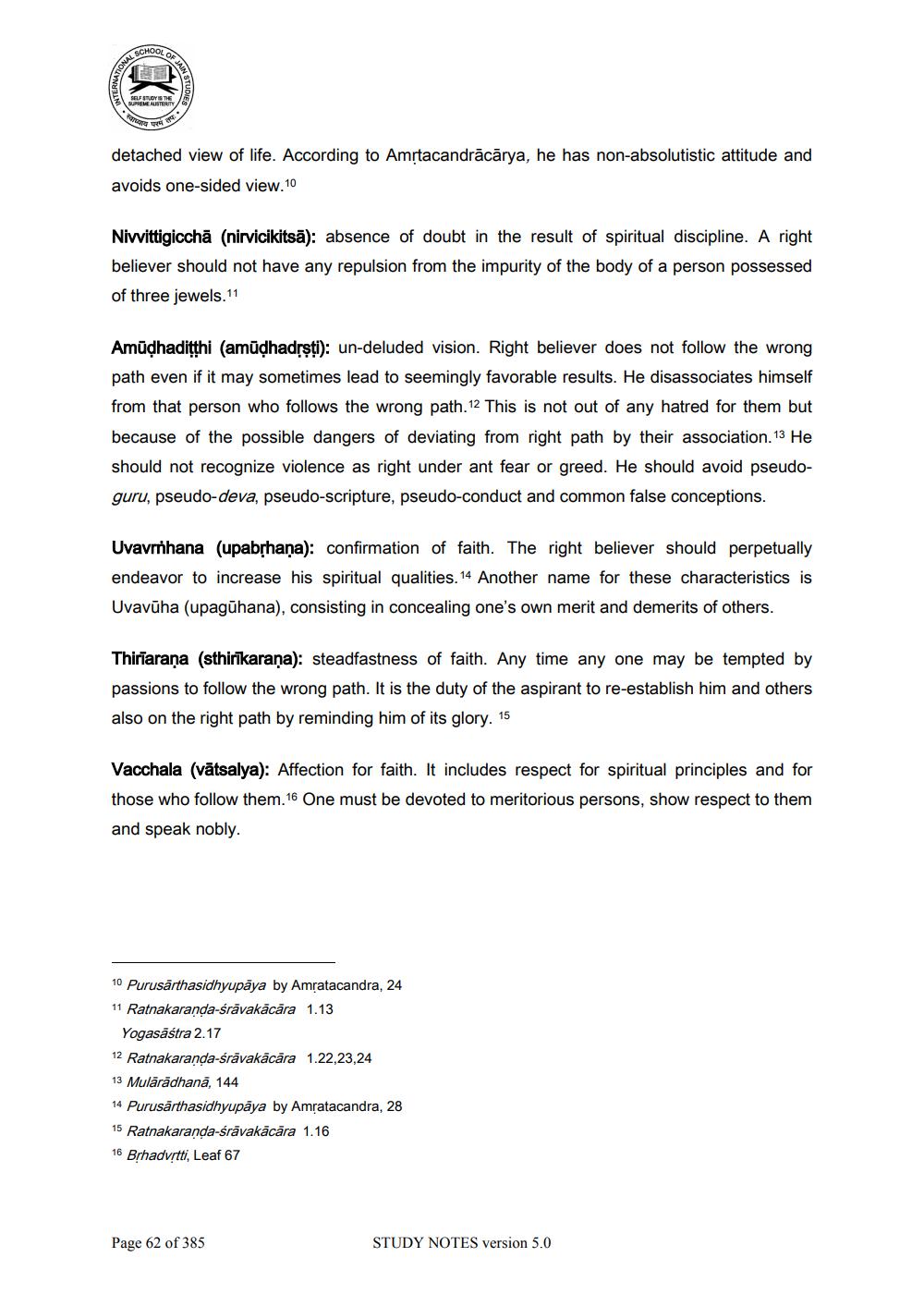________________
detached view of life. According to Amrtacandrācārya, he has non-absolutistic attitude and avoids one-sided view. 10
Nivvittigicchā (nirvicikitsā): absence of doubt in the result of spiritual discipline. A right believer should not have any repulsion from the impurity of the body of a person possessed of three jewels. 11
Amūdhadithi (amūdhadrsti): un-deluded vision. Right believer does not follow the wrong path even if it may sometimes lead to seemingly favorable results. He disassociates himself from that person who follows the wrong path. 12 This is not out of any hatred for them but because of the possible dangers of deviating from right path by their association 13 He should not recognize violence as right under ant fear or greed. He should avoid pseudoguru, pseudo-deva, pseudo-scripture, pseudo-conduct and common false conceptions.
Uvavihana (upabrhana): confirmation of faith. The right believer should perpetually endeavor to increase his spiritual qualities. 14 Another name for these characteristics is Uvavūha (upagūhana), consisting in concealing one's own merit and demerits of others.
Thirīarana (sthirīkaraņa): steadfastness of faith. Any time any one may be tempted by passions to follow the wrong path. It is the duty of the aspirant to re-establish him and others also on the right path by reminding him of its glory. 15
Vacchala (vātsalya): Affection for faith. It includes respect for spiritual principles and for those who follow them. 16 One must be devoted to meritorious persons, show respect to them and speak nobly.
10 Purusärthasidhyupāya by Amratacandra, 24 11 Ratnakaranda-śrāvakācāra 1.13
Yogasastra 2.17 12 Ratnakaranda-śrāvakācāra 1.22,23,24 13 Mulārādhana, 144 14 Purusārthasidhyupāya by Amratacandra, 28 15 Ratnakaranda-śrāvakācāra 1.16 16 Brhadvitti, Leaf 67
Page 62 of 385
STUDY NOTES version 5.0




